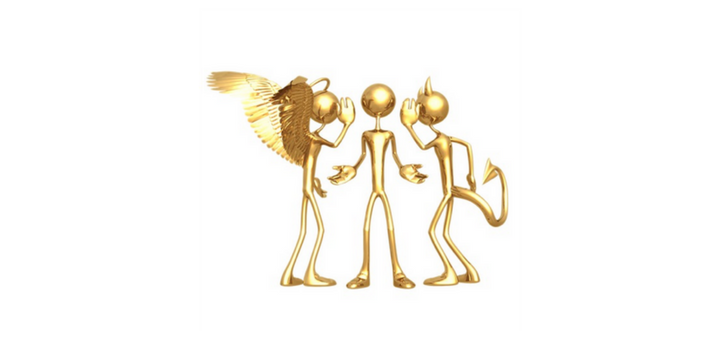The 2017 Gallup Poll entitled Views of US Moral Values Slip to Seven Year Lows noted that 81% of Americans believe that our country’s moral values are fair to poor; 77% opined that US moral values are getting worse; and these majorities feel that moral values have slipped to a new low. Yet, this same group of Americans “have adopted more permissive views on matters of morality than held at the beginning of the twenty-first century” — just 16 years ago. In fact, 10 of 19 issues polled show that Americans hold the most permissive views since polling began. Americans remain less permissive with regard to three of the above items: medical testing on animals; extra-marital affairs and the death penalty. (Jeffrey M. Jones. Americans Hold Record Liberal Views on Most Moral Issues. May 11, 2017; http://www.gallup.com/poll/210542/americans-hold-record-liberal-views-moral-issues.aspx)
Based on the polling, I wonder what the angst is all about with regard to declining moral values. The 2017 polled group is significantly more permissive — by their own admission — of many moral issues that were not accepted twenty, thirty or forty years ago.
Fox News Specialists (aired May 21, 2017) discussed the Poll results and proffered the following proofs that American values are definitely going downhill: rude, offensive and negative commentary on various fronts including social media; acting on feelings rather than rationality; a general shunning of all religious influence; and growing disinterest in any religious affiliation. FOX guest Lawrence Jones suggested that because Millennials - in large measure — don’t go to church or belong to a religion, they lack moral values. Fox specialist Kat quickly took issue with Lawrence’s statement and expressed her belief that a person does not need religion to be a moral person or to have moral values.
Does church attendance or religious affiliation matter when it comes to the forming of personal moral values? Is religion/church important to the forming of good societal moral values?
Before answering these questions, let’s define moral values and morality.
Moral values are the set of principles, the ideals, that we live by; they guide our actions.
Children begin to form moral values and personal beliefs early in life that reflect their parents’ world views, personal examples and expressed beliefs. As a child matures, other people begin to yield more influence over a young person; these can include friends, peers, teachers, employers, coaches and others. These influencers, along with other external factors such as personal experiences, educational and employment opportunities or lack thereof, cultural influences, challenges to personal core beliefs, and personal observations, refine personal beliefs, value system, and worldview.
Personal beliefs are often the whys behind our decisions or actions; these explain what we believe to be true and false; right or wrong, good or bad. For example: “I think [fill in the blank] is wrong because I believe . . .” Moral values often predict our actions and choices. While moral values ought not to be hinged on politics, they should influence our politics.
Some people — like Kat — argue that we do not need religion to have or live by moral values. Ancient philosophers including Aristotle, Plato, and King Hammurabi lend credence to her argument as do secular cultures past and present. Like Hammurabi, non-religious people and societies are capable of enacting effective civil laws that help to civilize the world. People can discern right and wrong with their rational brains.The Catholic Church agrees; she teaches that the commandments of the Decalogue (the Ten Commandments) are accessible to reason alone (CCC 2071). The Church also adds:
“to attain a complete and certain understanding of the requirements of the natural law, humanity needed revelation [from God]. A full explanation of the Commandments [revelation from God] became necessary because the light of reason was obscured and the will had gone astray due to sin.”
Therefore faith, religion and Church help all of us better understand right and wrong more fully; they are the linchpin between morality and our understanding why.
Most of us realize — like St. Paul - that we often “do not do the good we want, but do the very evil that I do not want.” (Romans 7:19) The blame lies with original sin and its rotten fruit called concupiscence. Few of us can ever fully — while on this earth — understand the requirements of both Divine and Natural Law. Even brilliant minds such as St. Thomas Aquinas failed to fully understand God and His Laws. In fact, Aquinas said as much after experiencing a vision which caused him to conclude that all he had written with regard to God and theology “was like straw compared to what had been revealed to him.” (Bishop Robert Barron. The Pivotal Players: St. Thomas. P. 13)
Natural Law is “the Creator’s very good work, it provides the solid foundation on which man can build the structure of moral rules to guide his choices. It also provides the indispensable moral foundation for building the human community. Finally it provides the necessary basis for the civil law with which it is connected whether by a reflection that draws conclusions from its principles or by additions of a positive and juridical nature." [CCC1959]
Natural and Divine Laws "bring to light the essential duties and the fundamental rights inherent in the nature of the human person. The Decalogue contains a privileged expression of the natural law: From the beginning, God implanted in the heart of man the precepts of the natural law. Then he was content to remind him [mankind] of them. This was the Decalogue." (CCC 2070)
Personally I am extremely grateful for the Church; Her knowledge far exceeds my own even in simple matters about basic human rights and natural law.
Let’s distill the previous quote down a bit. The fundamental rights inherent in the nature of the human person come from being made in the image and likeness of God — every one of us. We are all His beloved, adopted children — if we choose Him over self. Do we act like beloved children made in His Image? Not very consistently. Do we fully understand His Love? Not really. And so we need to learn from God Himself and from His Church and Saints. Yes, we still wander in the desert just like the ancient Jews because we are incapable of fully getting God’s divine and natural laws due to the fact that our reasoning powers have been dulled by wills that have gone astray.
Thankfully, Jesus reminds us time and time again that He is the Vine and we are the branches.
“He who abides in me and I in him; he it is that bears much fruit for apart from me you can do nothing.” (John 15:5)
“When we believe in Jesus Christ, partake of his mysteries (through the Church) and keep his commandments, the Savior himself comes to love, in us, his Father and his brethren, our Father and our brethren. His person becomes, through the Holy Spirit, the living and interior rule of our activity.” (CCC 2071)
“This is my commandment, that you love one another as I have loved you.” (John 15:12)
What values are we capable of cobbling together if we detach from the Vine? A look at the recent Gallup Poll and even our own culture reveals many of the answers. Consider that morality is a measure of personal holiness. And holiness is necessarily rooted in the command to love others as Jesus has loved us. This is a very difficult standard to adopt without hearing and receiving sage advice and example from authentically holy saints — living and dead. So we ought to look to the past and present for help in assembling our personal moral values and morality.
Holiness is the same — today, yesterday, and tomorrow — because it is the measure by which a person acts right and does right while striving to attain the perfection of charity. (CCC 1709) Holiness is the perfection of selfless love for the sake of others. We cannot be holy without striving to imitate Christ. Personal holiness emerges from having a properly formed conscience. Holiness means that the person applies the free and good use of the Will (reason) to check any runaway passions. We have been given the “freedom to judge rightly in this matter.” (CCC page 888) But it is only God’s graces that perfect our actions and thoughts and words. Upright discernment (morality, good moral values) of right from wrong comes about when we pursue the truth even when confronted by “situations that make moral judgements less assured and decisions difficult. But we must always seriously seek what is right and good and discern the will of God expressed in divine law.” (CCC1787)
The absence of holiness [or even a desire for holiness] reflects a deliberate wandering away from God’s moral, Divine and Natural Laws. The decline in moral values reflects a disobedience of God.
“Fear the Lord your God; you shall serve him alone. You shall not go after other gods.” [Deuteronomy 6: 13-14]
In conclusion, people can certainly live moral lives and have moral values without being religious persons. But can they do right by their fellow man and God - authentically?
“He revealed through his Ten Commandments our fundamental duties towards Him and our neighbors. These are grave obligations, immutable and they oblige everyone, always and everywhere. No one can dispense from them. They are engraved on every human hearts.” (CCC 2072)
[tweet "Why we need God in order to really get morality right, by @LindaKracht"]
Yes, we need God in order to really get morality right. Let’s try and convince our neighbors that this is true, that in and through our efforts to love others authentically we will help them adopt moral values that attach them to the Vine of Christ.
Questions to ponder:
- Do you believe that you need God and religion to live a moral life? How so?
- What would you say to friends and family who argue that we do not need religion or the Church to live moral lives?
Copyright 2017 Linda Kracht
About the Author

Linda Kracht
Linda is a wife, mother of seven, and grandmother of 23. Linda is founder of Fortifying Families of Faith, LLC and her books include: Daughters Forever, Sons Forever; The Art of Breastfeeding, published by the Couple to Couple League; Mothers Forever, Fathers Forever; Surviving College; Black and White; and A Book for All Seasons.



.png?width=1806&height=731&name=CatholicMom_hcfm_logo1_pos_871c_2728c%20(002).png)
Comments